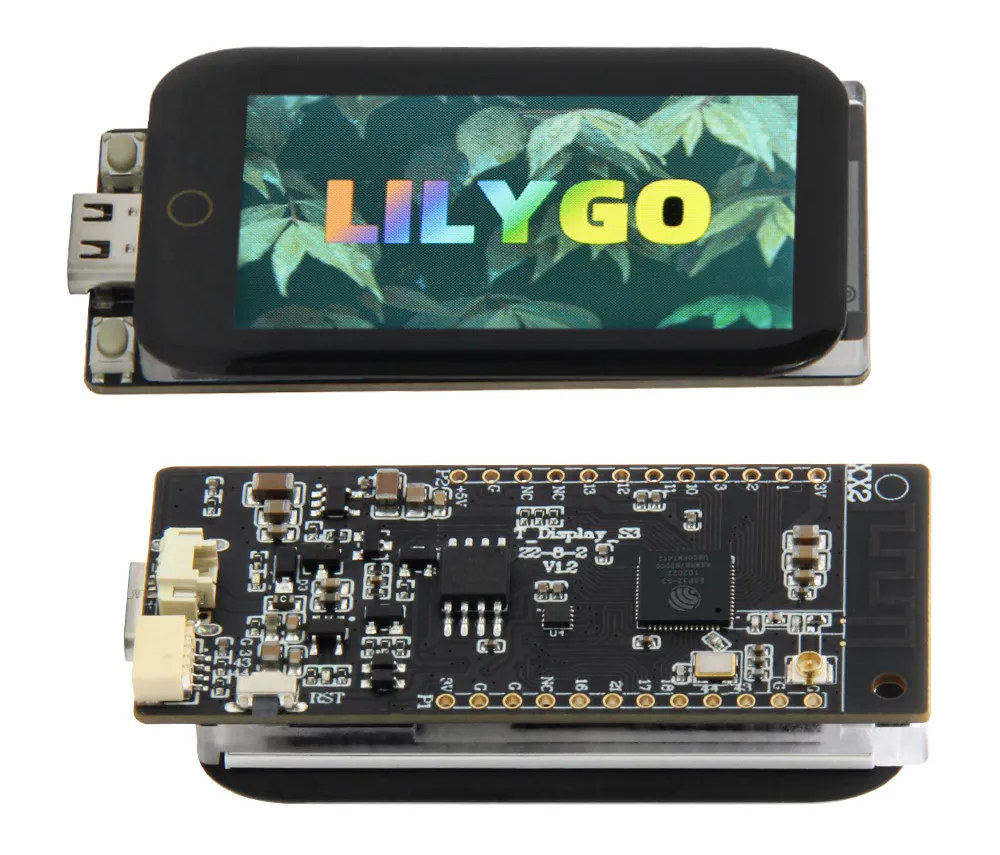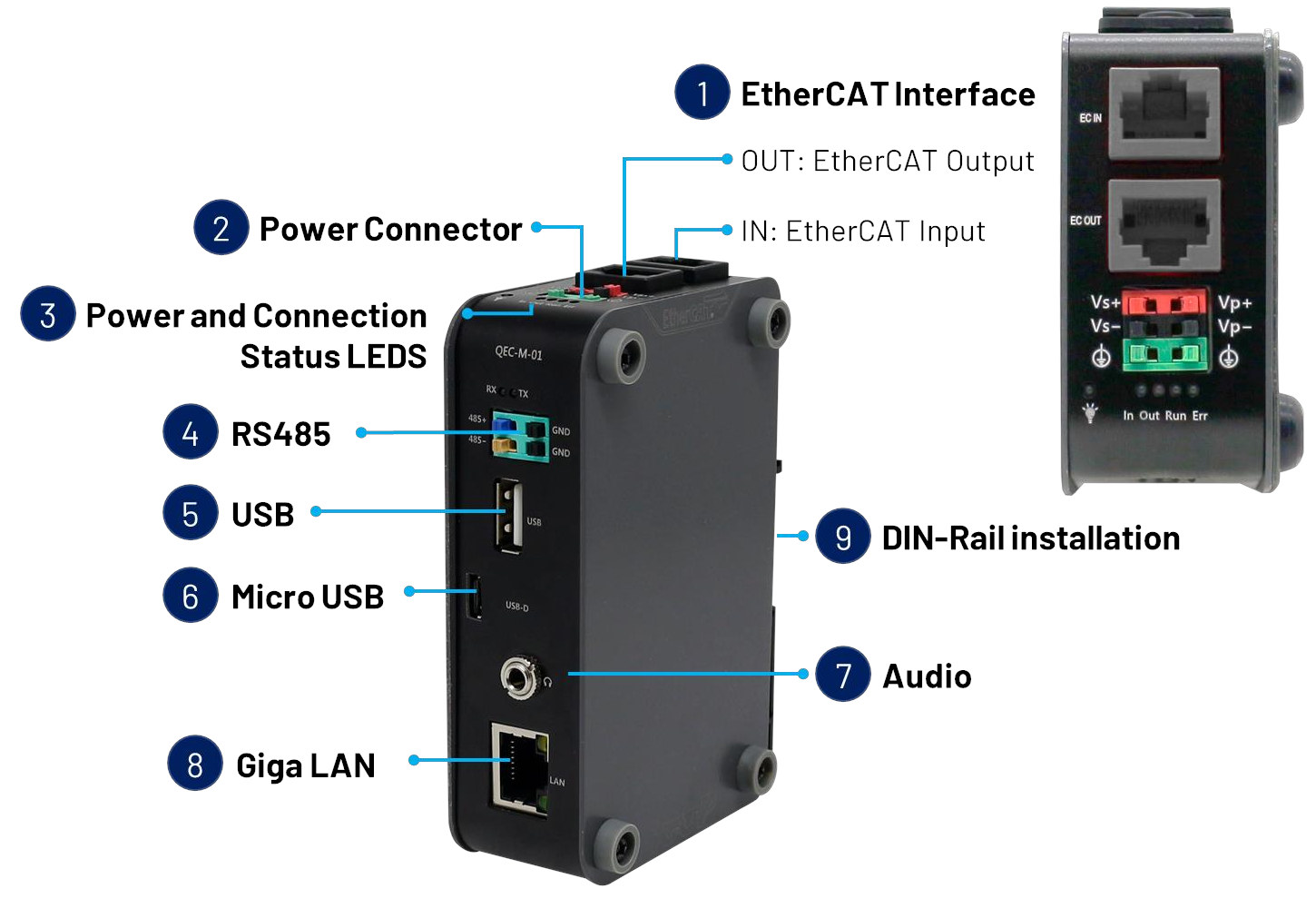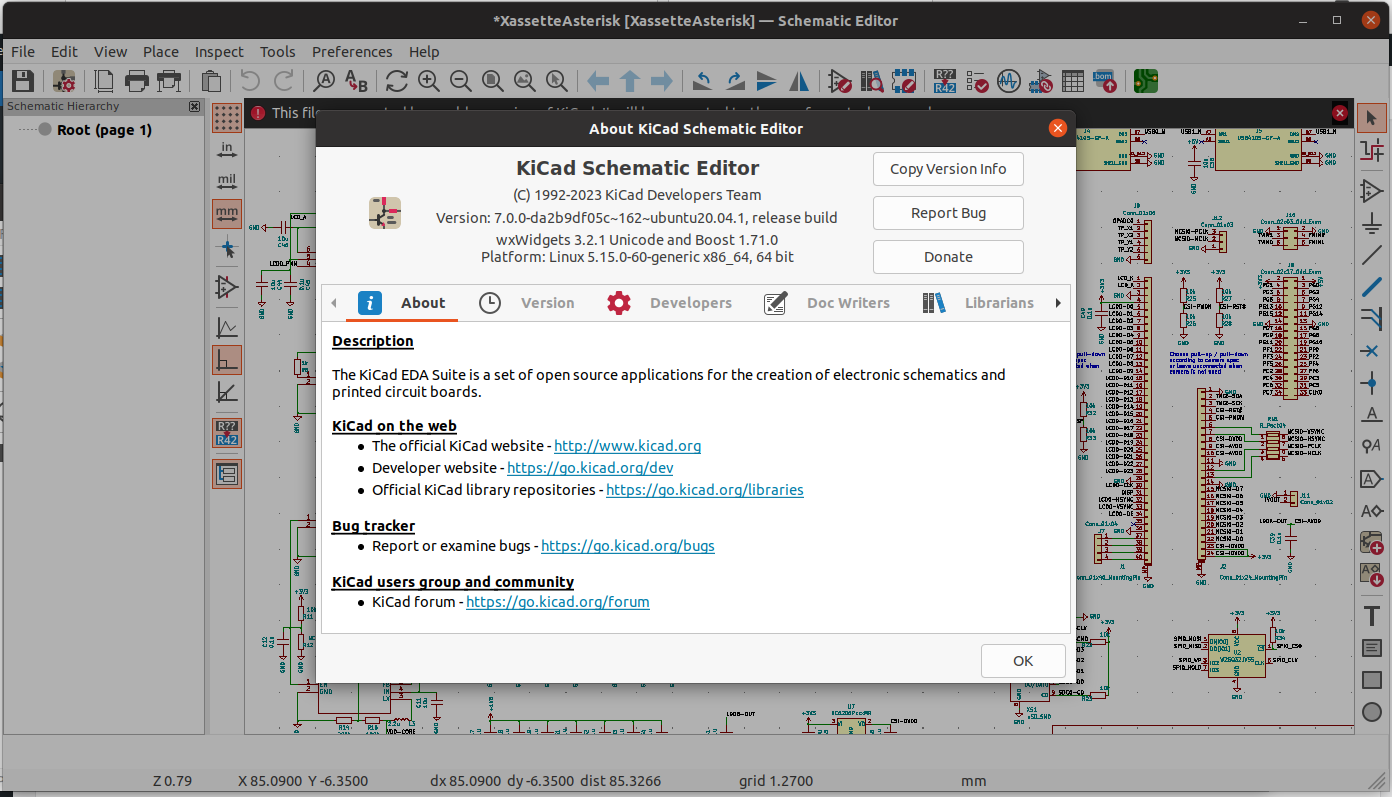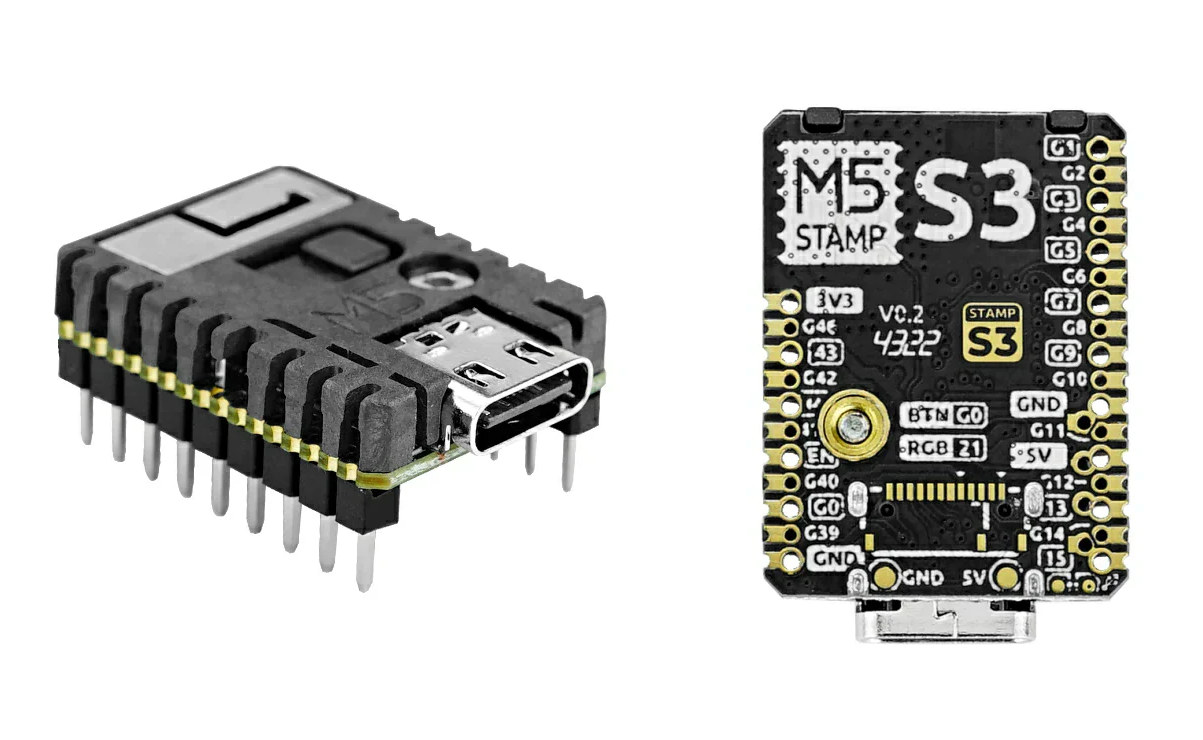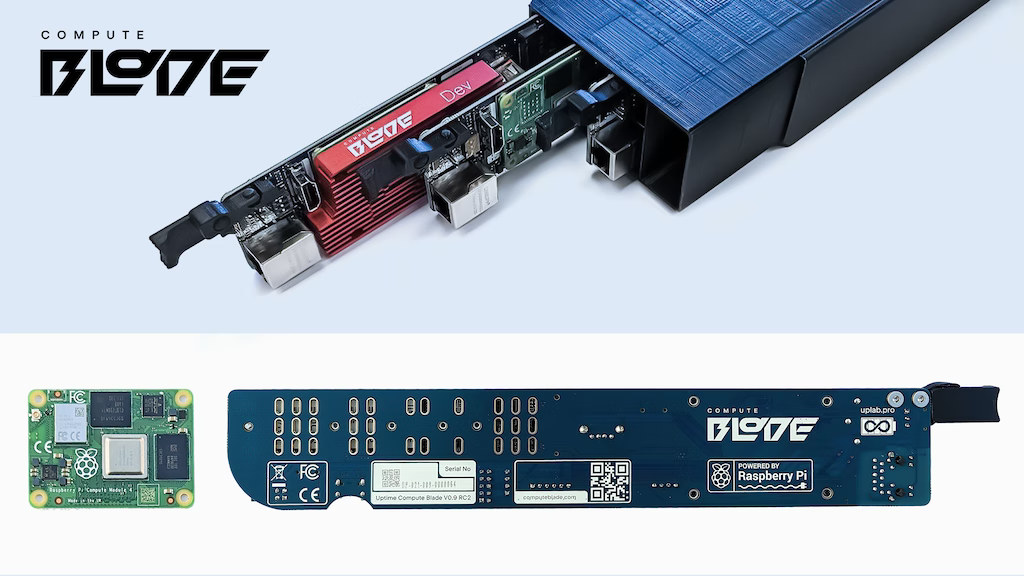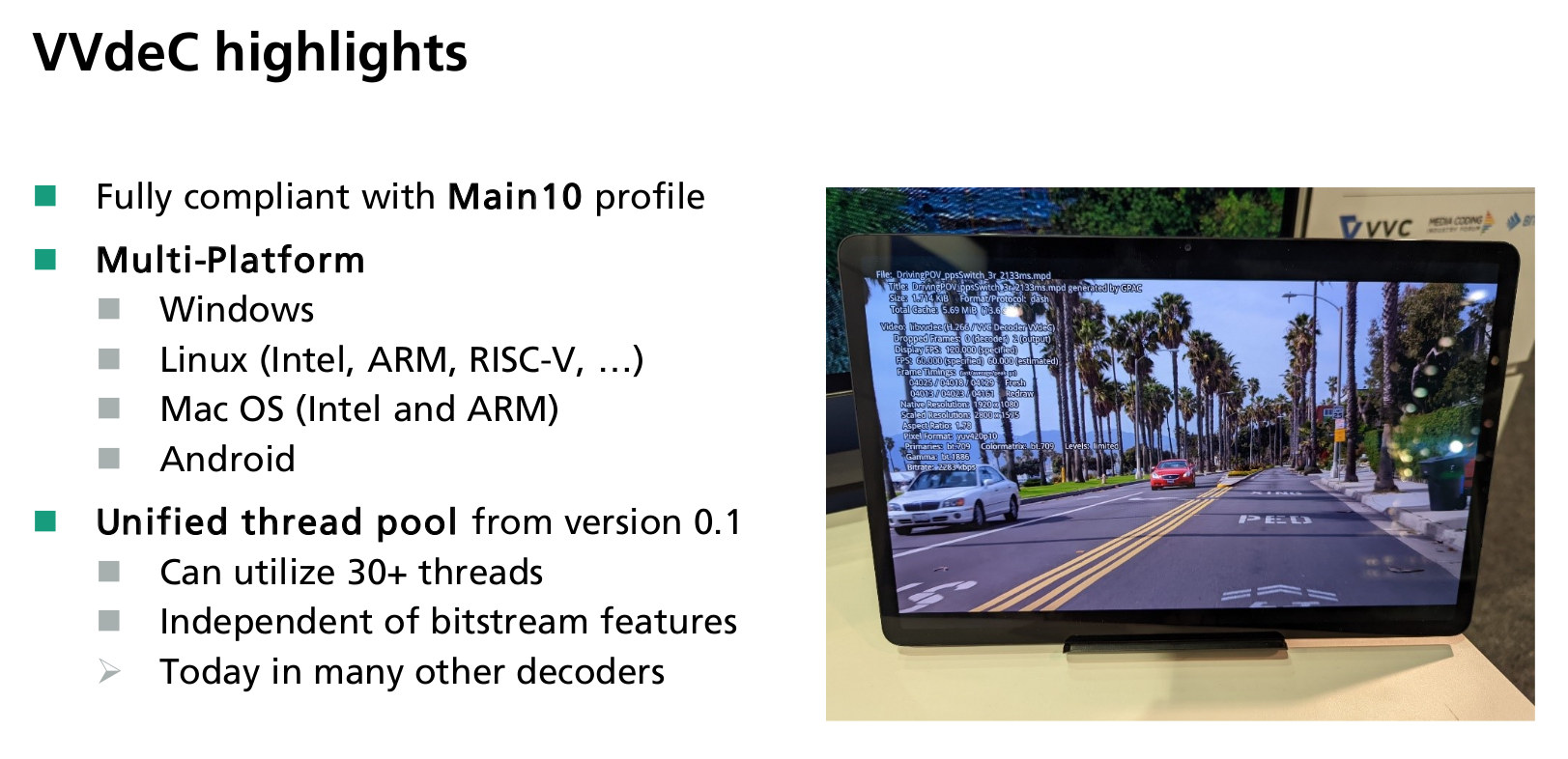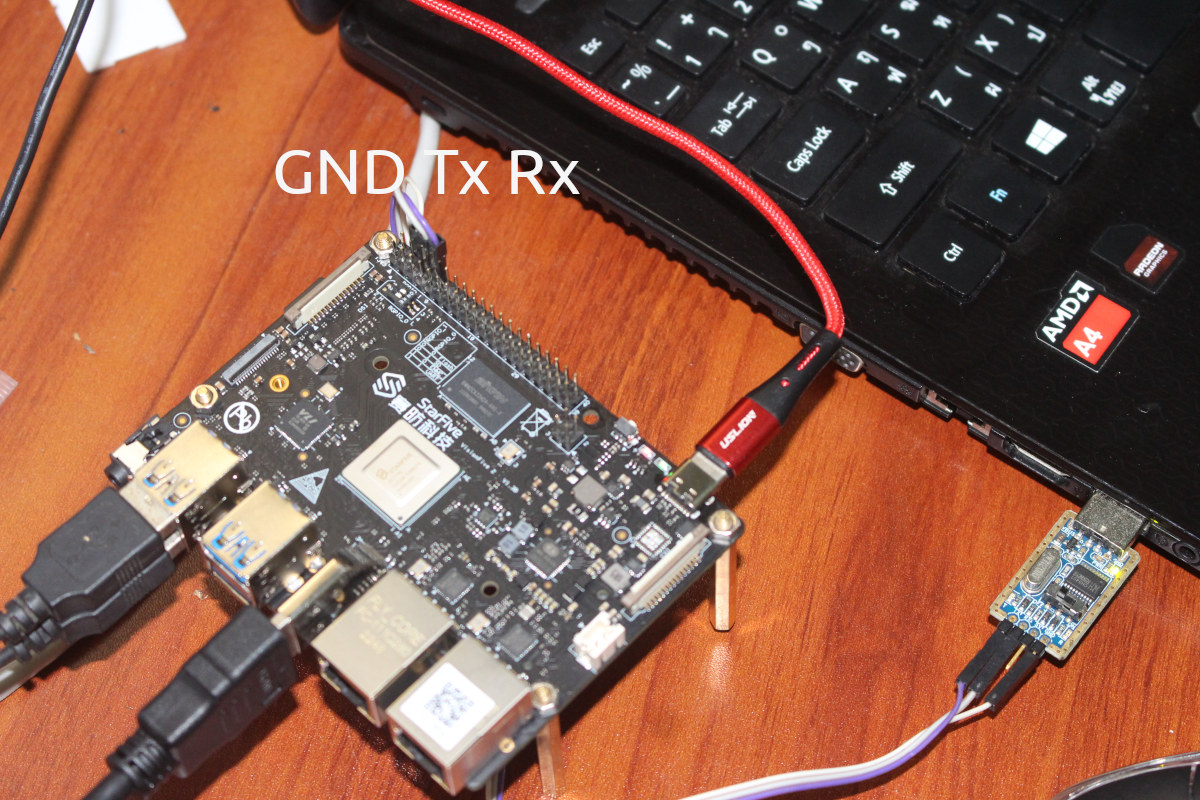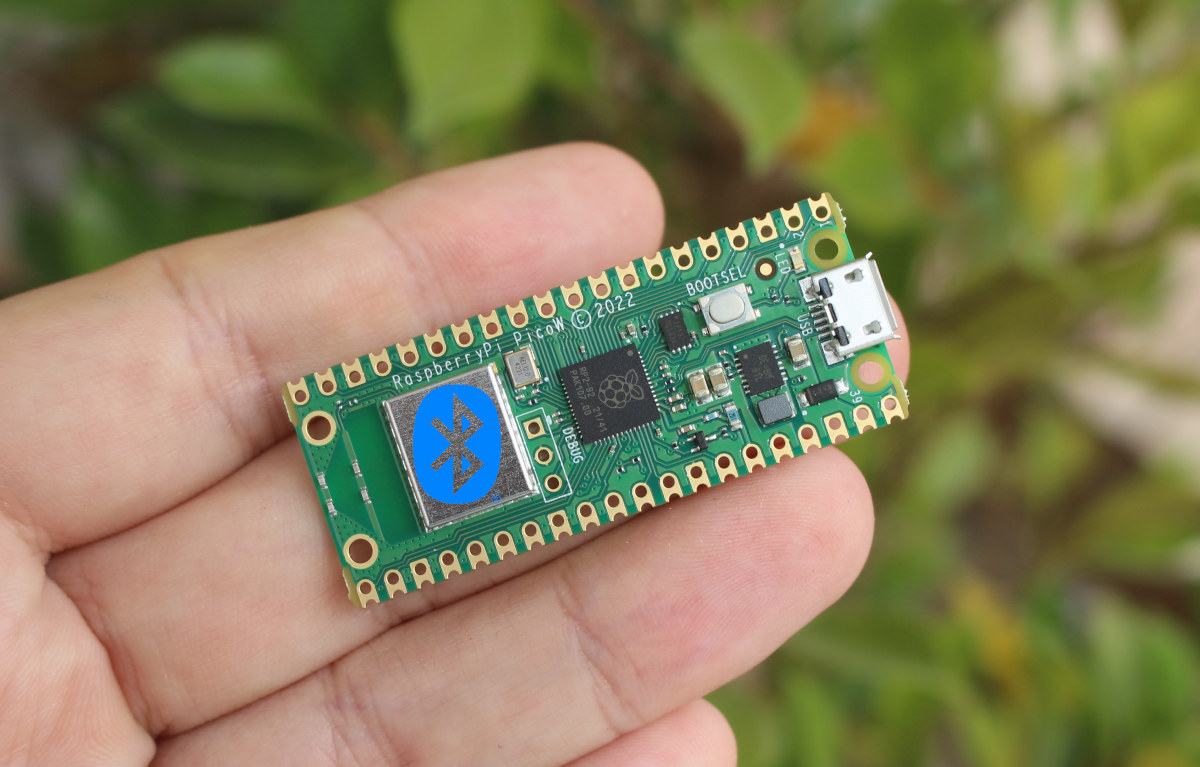T-Display-S3 Touch is an update to the T-Display-S3 “Basic” ESP32-S3 board that adds a 320×170 touchscreen using a CST816 I2C touchscreen sensor. The rest of the specifications remains the same with an ESP32-S3R8 dual-core WiFi and Bluetooth LE microcontroller, 16MB flash, a 1.9-inch 320×170 color display, a USB Type-C port, a few I/Os, and support for a LiPo battery. T-Display-S3 Touch specifications: Wireless MCU – Espressif Systems ESP32-S3R8 dual-core Tensilica LX7 @ up to 240 MHz with vector instructions for AI acceleration, 512KB RAM, 8MB PSRAM, wireless connectivity Storage – 16MB flash Connectivity via ESP32-S3 2.4 GHz 802.11 b/g/n Wi-Fi 4 with 40 MHz bandwidth support Bluetooth Low Energy (BLE) 5.0 connectivity with long-range support, up to 2Mbps data rate. PCB antenna and external u.FL antenna support Display – 1.9-inch 320×170 IPS full-color LCD using the ST7789V 8-bit parallel display controller and Shenzhen Zhengxin CST816 I2C touchscreen sensor. USB – […]
Arduino-programmable EtherCAT master runs FreeDOS on Vortex86EX2 x86 processor
ICOP QEC-M-01 is an EtherCAT master system running FreeDOS based on DM&P Vortex86EX2 dual-core x86 processor. It is programmable with an industrial Arduino IDE – the 86Duino IDE – that supports an EtherCAT API for real-time field monitoring and big data collection. The system can be used for industrial automation applications that require precise timing and it can monitor the hardware’s voltage, current, and temperature to calculate/estimate carbon emissions for industrial manufacturing to assist in the tracking of a factory’s carbon footprint. ICOP QEC-M-01 specifications: SoC – DM&P Vortex86EX2 dual-core processor with the Master core clocked up to 600MHz and the Slave core up to 400MHz System Memory – 1GB or 2GB DDR3 Storage – 32MB SPI Flash, MicroSD card, optional eMMC flash Networking Gigabit Ethernet RJ45 port 2x 10/100Mbps Ethernet RJ45 ports for EtherCAT master with support for CANopen over EtherCAT (CoE), File Access over EtherCAT (FoE), Distributed Clocks […]
KiCad 7.0.0 release – Custom fonts, text boxes, SpaceMouse, crash reporting, and much more
KiCad 7.0.0 open-source EDA software has just been released with a range of new features from custom fonts to 3Dconnexion SpaceMouse integration to opt-in Sentry crash reporting, and many more. It took over three years between KiCad 5.0.0 and KiCad 6.0.0 announcements, but only a little over a year for the release of KiCad 7.0.0. Did KiCad developers acquire superhuman abilities or did AI get involved in the development somehow? Most probably not, and instead they change the release schedule to a yearly one, so we should get annual releases of the open-source EDA suite going forward, with KiCad 8.0.0 to be released in Q1 2024. Some notable changes to KiCad 7.0 include: Custom Fonts support is now available in the schematic, PCB, and worksheet editors to allow the use of any system font. Text box support was added in both the schematic and PCB editors. 3Dconnexion SpaceMouse support in […]
M5Stamp S3 WiFi and BLE IoT module offers up to 23 GPIOs through 2.54mm and 1.27mm pitch holes
M5Stamp S3, aka M5Stamp ESP32S2 or Stamp S3, is a tiny ESP32-S3 WiFi & Bluetooth LE (BLE) IoT module with a USB Type-C port, over 20 I/Os available through 2.54mm and 1.27mm pitch headers and castellated holes, and a heat-resistant cover. Many of the “new” ESP32-S3 hardware platforms launches these days are often updates from an ESP32 design, and the M5Stack’s M5Stamp S3 is no exception building on the original M5Stamp Pico, and its ESP32-C3 variants, namely M5Stamp C3 and C3U. M5Stamp S3 specifications: WiSoC – Espressif Systems ESP32-S3FN8 dual-core 32-bit Xtensa LX7 microcontroller with AI vector instructions up to 240MHz, RISC-V ULP co-processor, 512KB SRAM, 2.4GHz WiFi 4 (802.11b/g/n), Bluetooth 5.0 BLE + Mesh, 8MB flash as found in the M5Stack ATOMS3 (Lite). Connectivity 2.4 GHz WiFi 4, 20 MHz and 40 MHz bandwidth, IEEE 802.11 b/g/n protocol, up to 150 Mbps Bluetooth 5, Bluetooth Mesh, with supports for […]
Compute Blade – A Rack-mountable PoE-powered Raspberry Pi CM4 carrier board with an NVMe SSD (Crowdfunding)
Uptime Lab Compute Blade is yet another Raspberry Pi CM4 carrier board, but it’s kind of unique with its long design designed to be mounted in racks and the board features an M.2 socket for an NVMe SSD plus an Ethernet port with PoE+ support. The board is designed for high-density, low-power consumption, plug-and-play blade servers for home and data-center use and users can build Home labs, edge servers with lower latency than cloud services, and CI/CD systems (build farms) for testing and software development. Compute Blade specifications: SoM – Raspberry Pi CM4 support and potentially alternative system-on-modules such as Radxa CM3 and Pine64 SoQuartz Storage NVMe SSD socket up to 22110 (2230, 2242, 2260, 2280 also supported) Optional MicroSD card slot Video Output – Optional HDMI port up to 4Kp60 Networking – Gigabit Ethernet RJ45 port with PoE+ USB USB Type-C port to flash the bootloader, eMMC/SD card, and […]
VVenC & VVdeC H.266 open source video encoder and decoder work on x86 and Arm
VVenC and VVdeC are open-source software H.266/VCC video encoder and decoder respectively that are optimized to use SIMD instructions on x86 (SSE42/SIMDe and AVX2) and Arm, and the decoder runs on Windows, Linux, macOS, and Android. H.266, aka VCC (Versatile Video Coding) video compression standard was adopted in 2020 promising to reduce data requirements by around 50% compared to the previous H.265/HEVC standard at the same visual quality. H.266 should also outperform the royalty-free AV1 video codec. We hadn’t seen news since the announcement, but this may be changing with the Realtek RTD1319D processor unveiled with support for both 4K H.266 and AV1 video decoding last September, and progress made on the VVenC & VVdeC H.266 open-source software encoder/decoder as been discussed during FOSDEM 2023. The Fraunhofer HHI group has been working on VVdeC and VVenC since the specifications were finalized in 2022. Both are based on VTM reference software […]
Hands-on experience with StarFive VisionFive 2 RISC-V SBC using Debian 12
StarFive sent me one of their VisionFive 2 RISC-V SBC for evaluation and review. I got the model with dual Gigabit Ethernet and 8GB RAM, and I’ll report my experience with the Debian 12 “bookworm” image. But note that won’t exactly be a review since the board is unreviewable at this time. It’s really for early adopters and there are many issues to solve, and in this post, I’ll report what works and what doesn’t, and some of the challenges I encountered just to install the OS… VisionFive 2 unboxing The board comes in a package that reads “Embrace change, embrace the future”. The bottom side has some useful links and QR codes, and what you’ll want is the GitHub repository with the source code and instructions to build the image from source (Note: Ubuntu 16.04, 18.04, or 20.04 x86_64 recommended), as well as the RVspace forum section for the […]
Raspberry Pi Pico W gets Bluetooth support in SDK 1.5.0
The Raspberry Pi Pico W board was launched with a WiFi 4 and Bluetooth 5.2 module based on the Infineon CYW43439 wireless chip in June 2022, and I wrote a tutorial showing how to connect to WiFi a few days after the launch, but nothing about Bluetooth. That’s because while the Raspberry Pi Pico W hardware supports Bluetooth, we were told that Bluetooth was not enabled at the time, but might be at a later stage. Alasdair Allan, who is responsible for the Raspberry Pi documentation, said Bluetooth support was scheduled very soon, and the SDK 1.5.0 release of the Pico C SDK is now available with Bluetooth implemented using BTstack low footprint dual-mode Bluetooth stack. Bluetooth support is still considered Beta and the SDK 1.5.0 implements the following key features and updates: New libraries for Bluetooth Low Energy (LE) support. Bluetooth Classic support. Bluetooth Sub Band Coding (SBC) encoder […]


